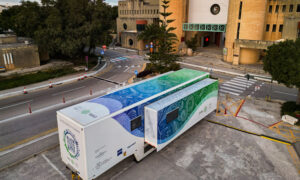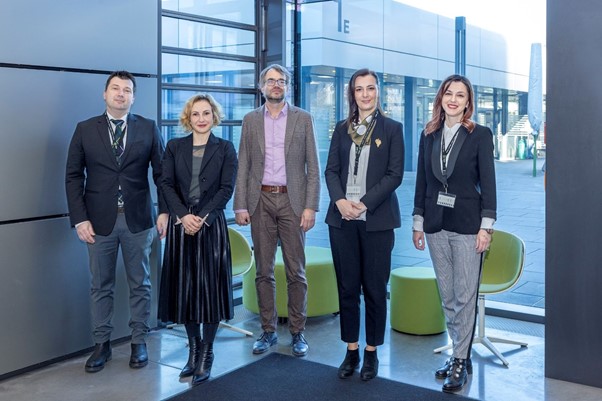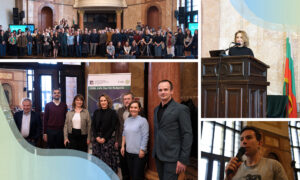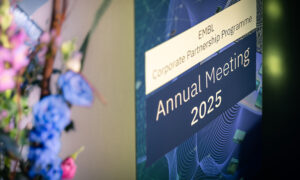
EMBL and Montenegro: boosting cooperation and enhancing awareness
Visit to EMBL focuses on enhancing science, services, and training links

Europe’s life sciences laboratory EMBL on 5 April welcomed Council delegates Ivana Lagator and Lidija Vukcevic from the Montenegrin Ministry of Science and Technological Development, and University of Montenegro representative Professor Danilo Mrdak, to discuss expanding research and training opportunities for the Montenegrin scientific community.
The visit involved the International Relations Office, EMBL training professionals, Group Leaders and scientists interested in expanding scientific cooperation especially in environmental research such as stronger connections between ecology and DNA research by delving into Montenegro’s wildlife, and pristine marine and coastal ecosystems – research which would align with EMBL’s 2022-26 Molecules to Ecosystems scientific programme to understand ecosystems at the molecular level and study life in context.
The discussions also addressed the best ways and most efficient channels to disseminate EMBL opportunities in the future to the Montenegrin research community, including opportunities for boosting cooperation and more engagement with EMBL’s services and training.
Council delegate Lidija Vukcevic said: “This visit was an excellent opportunity to outline the next steps for further strengthening of our already successful cooperation, as well as to define a joint approach to a more intensive promotion of EMBL activities in Montenegro. Having in mind the importance of this organisation for the development of research in the field of life sciences, we wish to encourage the Montenegrin research community to make use of the multiple opportunities provided by EMBL.”
Montenegro joined EMBL as a member state in 2018, and in the same year EMBL signed a Memorandum of Understanding (MOU) with the University of Montenegro to foster continuous collaboration and to solidify the EMBL – Montenegro cooperation framework.
Over the past five years, the bilateral collaboration has included joint training activities and development of scientific collaboration in research fields of mutual interest, as well as student visits to EMBL Heidelberg. Practical courses on Cell Dissociation and Analysis were also held at the University of Montenegro’s Marine Biology Institute in Kotor. Scientific cooperation and exchanges in the field of evolutionary biology also matured, including analysis performed at the Heidelberg Genomics Core Facility.
Prof. Mrdak said: “I strongly believe that in the upcoming period we will have more researchers from Montenegro working in close cooperation with the EMBL and more applicants to various EMBL opportunities to make our membership and EMBL more visible within the researchers’ community in Montenegro.”
EMBL Head of International Relations, Plamena Markova, said: “We are delighted to have had important Montenegrin stakeholders from the Ministry and academia at the discussion table, to further build on existing scientific and institutional connections to strengthen our bilateral and multilateral cooperation with Montenegro’s scientific community.”
“Montenegrin scientists can further benefit from our training courses, short visits to our laboratories around Europe, and access to our world class research facilities and we look forward to strengthening cooperation in the current Programme.”


